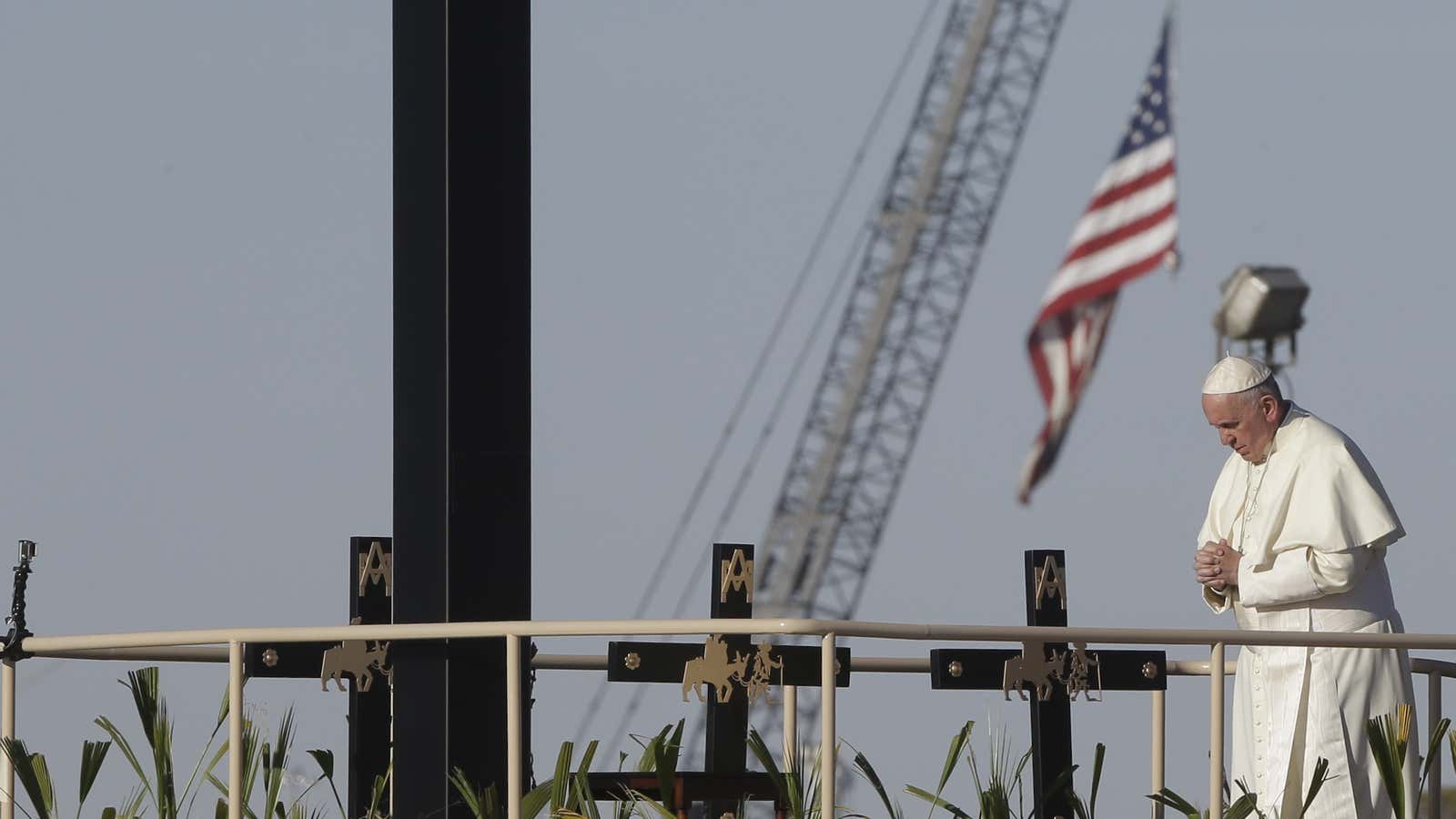Poor Pope Francis: He had no idea what he was getting into.
On a recent visit to the US-Mexico border, the pope called Donald Trump “not Christian” for his anti-immigrant views, and the Republican presidential candidate went ballistic. The Holy Father would be singing a different tune, he raged, when ISIL overran the Vatican. The next day a papal spokesperson issued a mollifying retraction; Trump reacted in kind; and that seemed to be that.
Some say Trump was just being his usual “tetchy narcissist.” After all, to paraphrase Stalin, how many electoral-college votes does the pope have?
But there may be more to this surreal spat than meets the eye.
The battle between Trump and his leading rivals for the Republican nomination, Ted Cruz and Marco Rubio, is in part a battle for the Christian vote. White evangelical Christians, to be sure, not the Catholics of immigrant origins who love the pope and hate the Donald. But in the political realm, evangelicals and Catholics in the United States have lately overcome their historical antipathy to forge alliances around traditional conservative issues such as abortion and gay rights.
The pope’s sympathy for immigrants and the global poor, however, puts him at odds with that conservative wing. His comments this week favoring birth control for women at risk of catching the Zika virus appear to position him as even more liberal—even if, as some argue, it’s largely illusory liberalism.
So when the world’s top Catholic questions a candidate’s Christian credentials, it’s both a provocation to the right, and potentially significant in a tightly fought nomination race. And when Trump attacked the pope as “very political,” he didn’t mean it in an abstract sense. He meant the pope was meddling in US affairs.
How many electoral-college votes hath the pope? Perhaps more than you (or he) might think.
This was published as part of the Quartz Weekend Brief. Sign up for our newsletters here, tailored for morning delivery in Asia, Europe & Africa, and the Americas.
